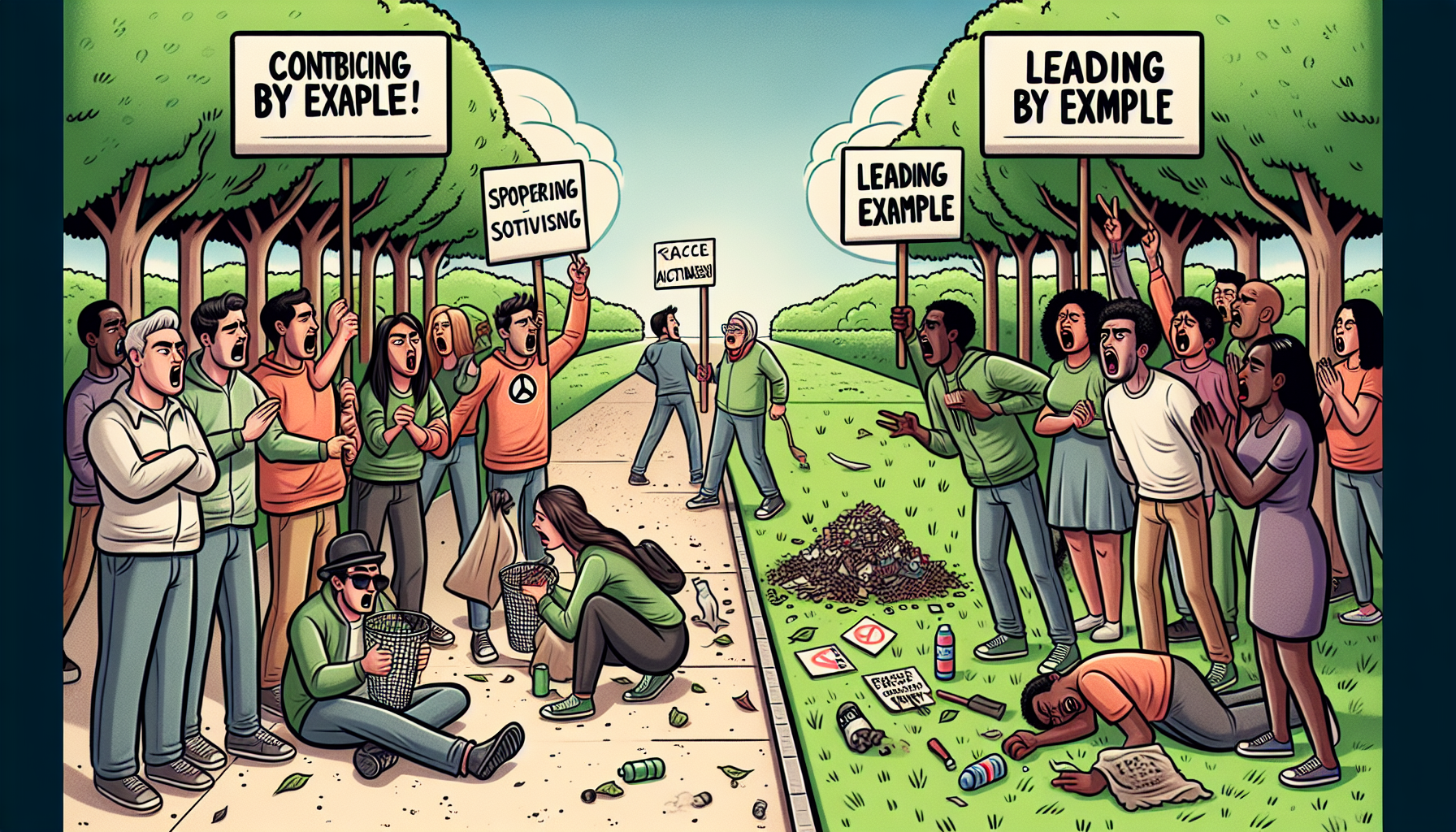The Rise of Climate Change Analysts in Corporate Boardrooms

Climate change is no longer a concern limited to environmental advocacy—it has become a pressing financial and operational issue for businesses across all sectors. Extreme weather events, such as hurricanes and droughts, are disrupting global supply chains and driving up costs. Regulatory frameworks, such as carbon pricing systems and mandatory climate risk disclosures, are adding new compliance burdens. Simultaneously, investors, customers, and employees are holding companies accountable for their environmental impact, pushing sustainability to the forefront of business strategy. This evolving landscape has created an urgent need for specialists who can assess and address climate-related risks. Enter the Climate Change Analyst, whose expertise spans scientific modeling, policy analysis, and economic forecasting. These professionals help companies identify vulnerabilities, develop climate resilience strategies, and align with global sustainability goals. Their work not only helps businesses mitigate risks but also positions them to capitalize on opportunities in the green economy—a sector expected to generate 24 million jobs globally by 2030, according to the International Labour Organization (ILO). The financial sector exemplifies this growing demand. Banks and asset managers are hiring Climate Change Analysts to evaluate the environmental risks tied to their portfolios, ensuring compliance with frameworks like the Task Force on Climate-related Financial Disclosures (TCFD). Similarly, energy companies are relying on these experts to guide their transition to renewable energy and meet net-zero commitments. As climate risks become central to business strategy, the need for specialized knowledge has never been greater.
A Seat at the Table: Analysts in Corporate Leadership
Traditionally, corporate boardrooms have been dominated by executives with expertise in finance, law, or operations. However, as climate change becomes a defining issue of the 21st century, the composition of leadership teams is evolving. Climate Change Analysts, once relegated to advisory or mid-level roles, are now being brought into the boardroom to inform high-stakes decision-making. One driving force behind this shift is the rise of Environmental, Social, and Governance (ESG) investing. ESG metrics are now integral to how companies are evaluated by investors, regulators, and customers. Boards are increasingly relying on Climate Change Analysts to help craft ESG strategies that address climate risks while meeting stakeholder expectations. For instance, financial institutions are hiring analysts to ensure their investments align with sustainability goals and regulatory requirements. In doing so, they signal to stakeholders that they are serious about addressing the climate crisis. This trend is not limited to finance. In industries ranging from manufacturing to technology, Climate Change Analysts are helping companies future-proof their operations. They assess risks such as rising sea levels, shifting consumer preferences, and supply chain disruptions, ensuring that businesses remain resilient in a rapidly changing world. For companies, incorporating climate expertise into leadership is not just about compliance—it’s about securing a competitive advantage as the global economy transitions to sustainability.
How Climate Change Analysts Are Driving Change
The influence of Climate Change Analysts extends far beyond regulatory compliance or risk management. These professionals are helping companies innovate, adapt, and create value in a carbon-constrained world. Key areas where their work is making a difference include: 1. **Climate Risk Assessments**: Climate Change Analysts evaluate both physical risks, such as extreme weather events, and transition risks, such as regulatory changes and market shifts. For example, a retail company might rely on an analyst to assess how rising temperatures and flooding could disrupt its supply chain. Based on these insights, the analyst could recommend diversifying suppliers or relocating warehouses to safer regions. 2. **Sustainability Strategies**: Setting and achieving ambitious sustainability goals requires expert guidance. Climate Change Analysts help organizations reduce greenhouse gas emissions, improve energy efficiency, and transition to renewable energy. Microsoft’s commitment to becoming carbon-negative by 2030 is one leading example, and the expertise of climate specialists plays a crucial role in turning such goals into reality. 3. **Investor Relations**: Climate Change Analysts are instrumental in communicating a company’s climate strategy to investors. By preparing detailed disclosures on climate risks and sustainability initiatives, these professionals help businesses secure funding and maintain investor confidence. This has become particularly important as sustainable finance gains momentum, with green bonds and climate-focused funds attracting billions of dollars in investment. 4. **Product and Service Innovation**: In some cases, Climate Change Analysts drive the development of climate-friendly products that meet evolving consumer demands. The automotive industry, for example, has leaned heavily on climate expertise to accelerate the shift toward electric vehicles (EVs), responding to both regulatory pressures and market trends.
Challenges and Opportunities
Despite the growing presence of Climate Change Analysts in corporate boardrooms, challenges remain. One of the most pressing issues is the talent gap. These roles require a unique combination of skills, including scientific expertise, financial modeling, and strategic communication. Yet professionals with this interdisciplinary knowledge are still relatively scarce. Addressing this gap will require investments in education and training, as well as partnerships between businesses and academic institutions. Another challenge is integrating climate considerations into every aspect of corporate decision-making. While Climate Change Analysts can provide valuable insights, their impact is limited if companies treat sustainability as a standalone issue rather than a core priority. To maximize the potential of these professionals, corporate leaders must embrace a holistic approach to climate action. Nonetheless, the opportunities are immense. Companies that elevate climate expertise to the highest levels of leadership will be better positioned to navigate the challenges of a warming world. Beyond risk mitigation, these organizations stand to gain a competitive edge by aligning with global sustainability trends and meeting the demands of environmentally conscious stakeholders.
The rise of Climate Change Analysts in corporate boardrooms reflects a fundamental shift in how businesses approach the climate crisis. Once considered a peripheral concern, climate change is now a central issue shaping corporate strategy, risk management, and innovation. By bringing specialized knowledge to the table, Climate Change Analysts are helping organizations navigate uncertainty, seize opportunities in the green economy, and contribute to a more sustainable future. As their influence grows, these professionals are redefining what it means to lead in the 21st century. Companies that embrace their expertise will not only adapt to the challenges of a changing climate—they will help drive the transition to a more resilient and sustainable global economy. In doing so, they will demonstrate that climate action is not just good for the planet—it’s good for business.
Corporate Sustainability Strategist
Multinational corporations, consulting firms (e.g., BCG, McKinsey), and global retailers
Responsibilities
Develop and implement organization-wide strategies to achieve sustainability goals, such as carbon neutrality or waste reduction.
Collaborate with cross-functional teams (e.g., operations, finance, and marketing) to integrate sustainability into core business practices.
Monitor and report on sustainability metrics, ensuring compliance with global standards like the Global Reporting Initiative (GRI) or Science-Based Targets (SBTi).
Skills/Qualifications
Strong understanding of supply chain dynamics, renewable energy systems, and life cycle assessments.
Experience engaging with stakeholders to align sustainability initiatives with business objectives.
Climate Risk Analyst (Financial Sector)
Banks (e.g., JPMorgan Chase, HSBC), asset management firms, and insurance companies
Responsibilities
Assess the financial risks posed by climate change, including physical risks (e.g., extreme weather) and transition risks (e.g., regulatory changes, carbon pricing).
Conduct scenario analysis and stress testing to evaluate the resilience of investment portfolios under different climate scenarios.
Prepare disclosures in line with frameworks like the Task Force on Climate-related Financial Disclosures (TCFD).
Skills/Qualifications
Expertise in climate modeling, environmental economics, and risk management tools like MSCI ESG Ratings or Moody’s Climate Risk Analytics.
Familiarity with regulatory compliance in sustainable finance (e.g., EU Taxonomy, SEC climate disclosure rules).
Renewable Energy Transition Specialist
Energy companies like Shell, BP, and Tesla; government agencies; and renewable energy startups
Responsibilities
Guide organizations in transitioning from fossil fuels to renewable energy sources, including solar, wind, and geothermal solutions.
Conduct feasibility studies, cost-benefit analyses, and project management for renewable energy installations.
Advise on energy storage solutions and grid integration to maximize efficiency and reliability.
Skills/Qualifications
Technical expertise in energy systems engineering and renewable energy policy.
Certification in renewable energy systems (e.g., NABCEP Solar PV).
Environmental, Social, and Governance (ESG) Data Analyst
Asset management firms, ESG rating agencies, and large publicly traded companies
Responsibilities
Analyze and interpret ESG performance data to help organizations improve their sustainability ratings and meet investor expectations.
Build data models and dashboards to track progress on key ESG metrics, such as carbon intensity and diversity targets.
Support investor relations teams by preparing ESG reports and responding to shareholder inquiries.
Skills/Qualifications
Proficiency in data analytics tools like Power BI, Tableau, or Python, and familiarity with ESG rating systems (e.g., Sustainalytics, MSCI).
Strong communication skills for translating complex data into actionable insights for non-technical stakeholders.
Resilience and Adaptation Planner
Government agencies (e.g., FEMA, UNDP), engineering firms, and large corporations with global operations
Responsibilities
Design strategies to help organizations adapt to climate change impacts, such as rising sea levels, extreme weather, and resource scarcity.
Conduct vulnerability assessments for physical infrastructure and supply chains, recommending resilience measures.
Collaborate with urban planners, engineers, and policymakers to create climate-resilient communities and business operations.
Skills/Qualifications
Background in urban planning, climate science, or environmental engineering.
Knowledge of resilience frameworks such as the Climate Resilience Toolkit or ICLEI’s Adaptation Planning Process.


